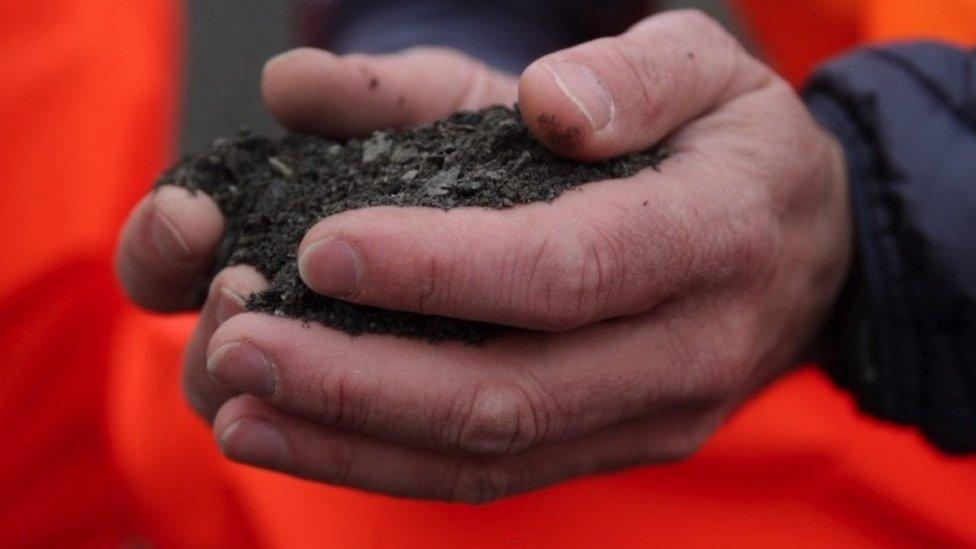North East farmers offered carbon capturing volcanic fertiliser
- Published
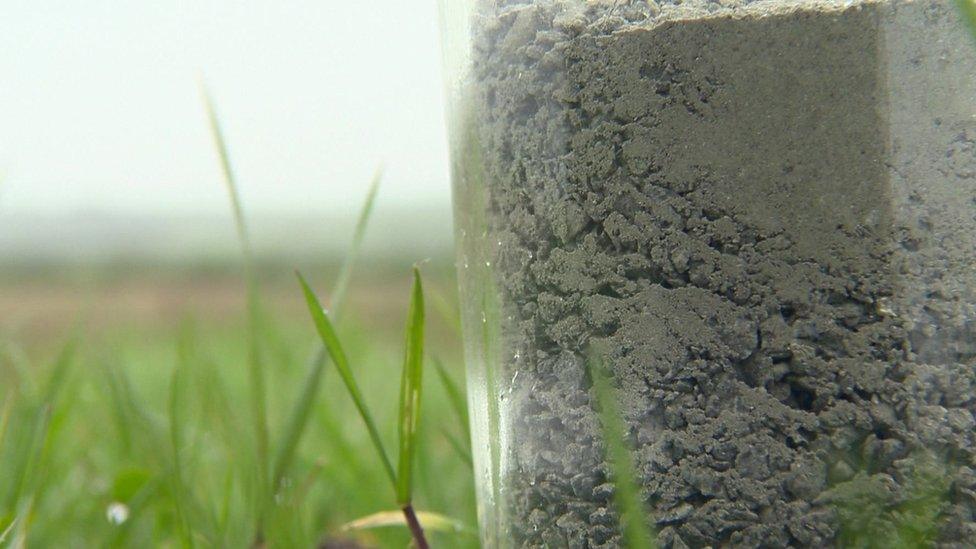
Many parts of the UK - including the North East - are rich in igneous (or volcanic) rock
Volcanic rock found in North East soil is being given to farmers in the hope of improving yields and environmental sustainability.
It follows a Newcastle University study into basalt rock powder which included a trial at Nafferton Farm, Stocksfield.
Researchers found the powder offered a potential yield increase of up to 22% while helping to capture carbon.
Manufacturer UNDO is giving the fertiliser to farms free of charge to encourage take up of the product.
The company does this in exchange for carbon credits, which it then sells on to generate income.
Prof David Manning, who led the study, said using the rock as a fertiliser could be "pivotal" for the industry.
Many parts of the UK - including north-east England - are rich in igneous (or volcanic) rock, which is easily accessible as a by-product of quarries across the region.
This rock is then ground into a powder which sucks up carbon dioxide from the atmosphere during rainfall in a process known as enhanced rock weathering.
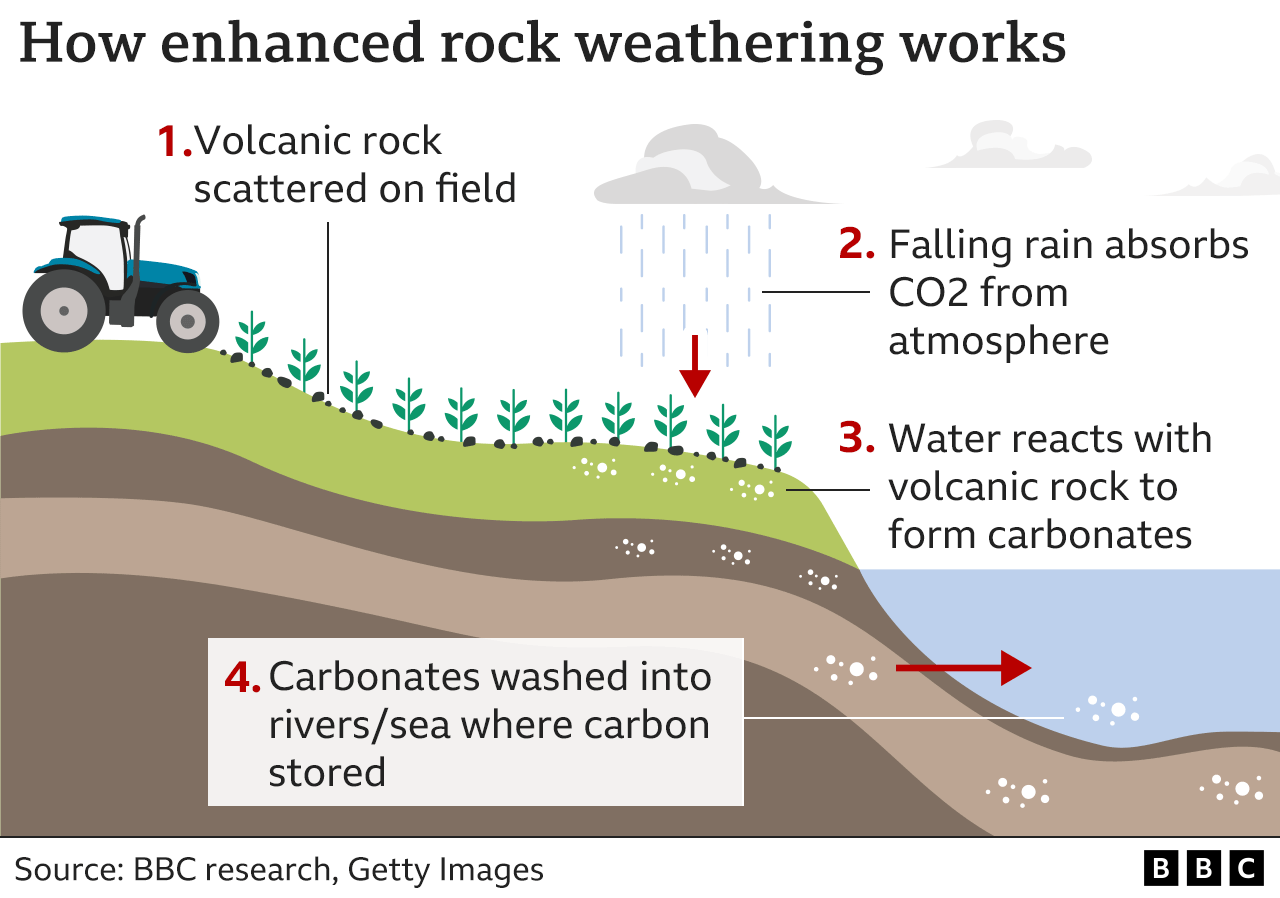
UNDO began experimenting with the powder in September 2021.
The peer-reviewed Newcastle study showed the rock combines carbon capture ability with fertilising properties, making it a realistic prospect for use on farms.
Prof Manning said: "What's new is the realisation that this process can take CO2 out of the atmosphere, we're very keen to support that implementation and make sure that actually happens."
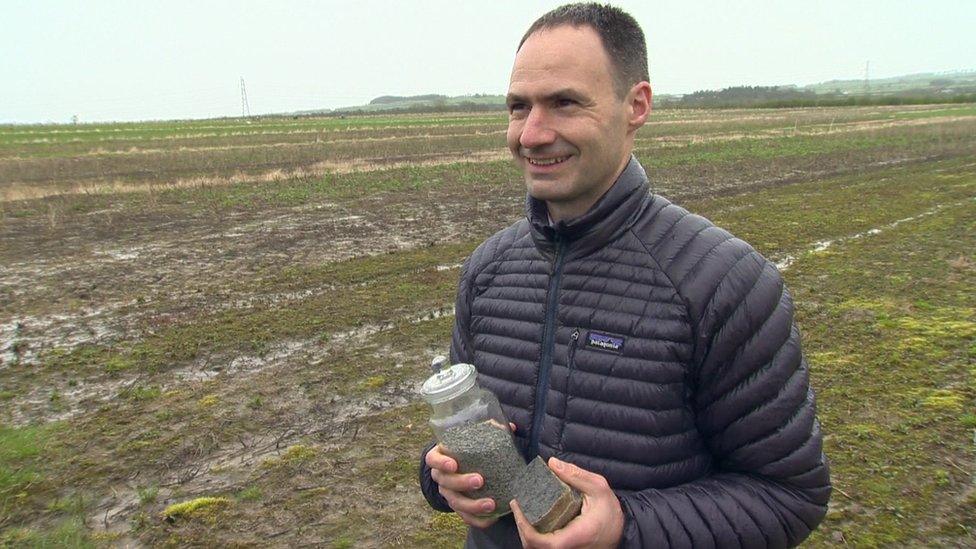
Jim Mann says he believes the fertiliser could remove large amounts of CO2
Jim Mann, CEO of UNDO, said: "Typically farmers are concerned that something bad might happen, so they'll often start off with a small area of their farm, test it there, and once they see the benefits of it they'll rapidly expand its use across the farm.
"Farmers are a really connected network of people, so we find when one uses it, we get a long line of people wanting to try this out on their own field.
"This is something we believe can go to real scale and can remove potentially 40% of the CO2 that we need to remove in the UK."

Follow BBC North East on Facebook, external, X (formerly Twitter), , externaland Instagram, external. Send your story ideas to northeastandcumbria@bbc.co.uk, external.
- Published11 December 2023
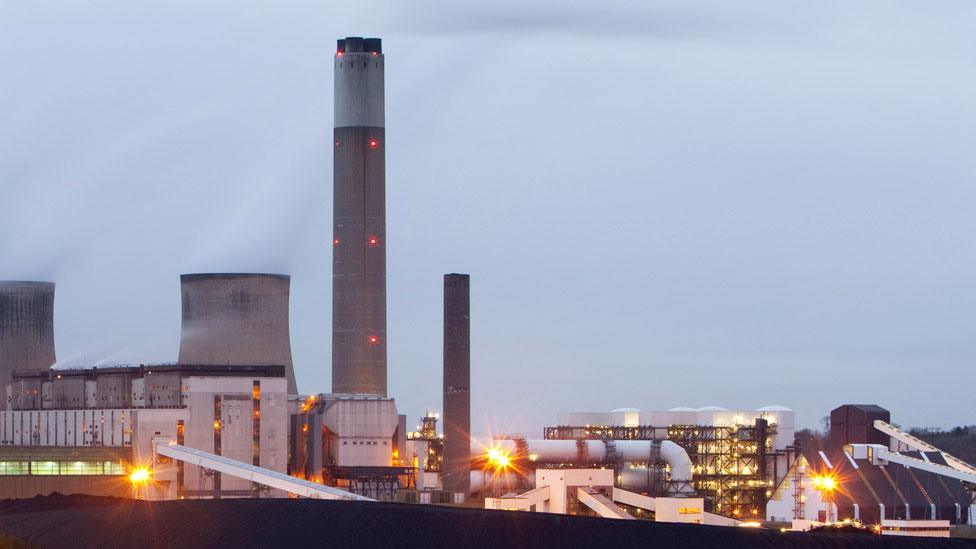
- Published21 May 2023
